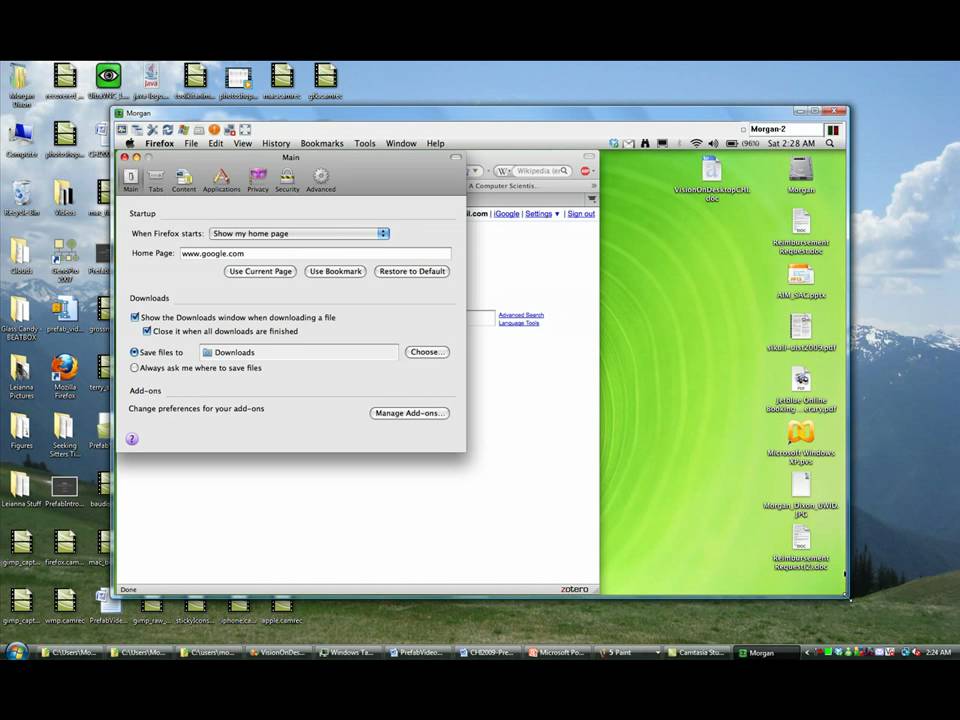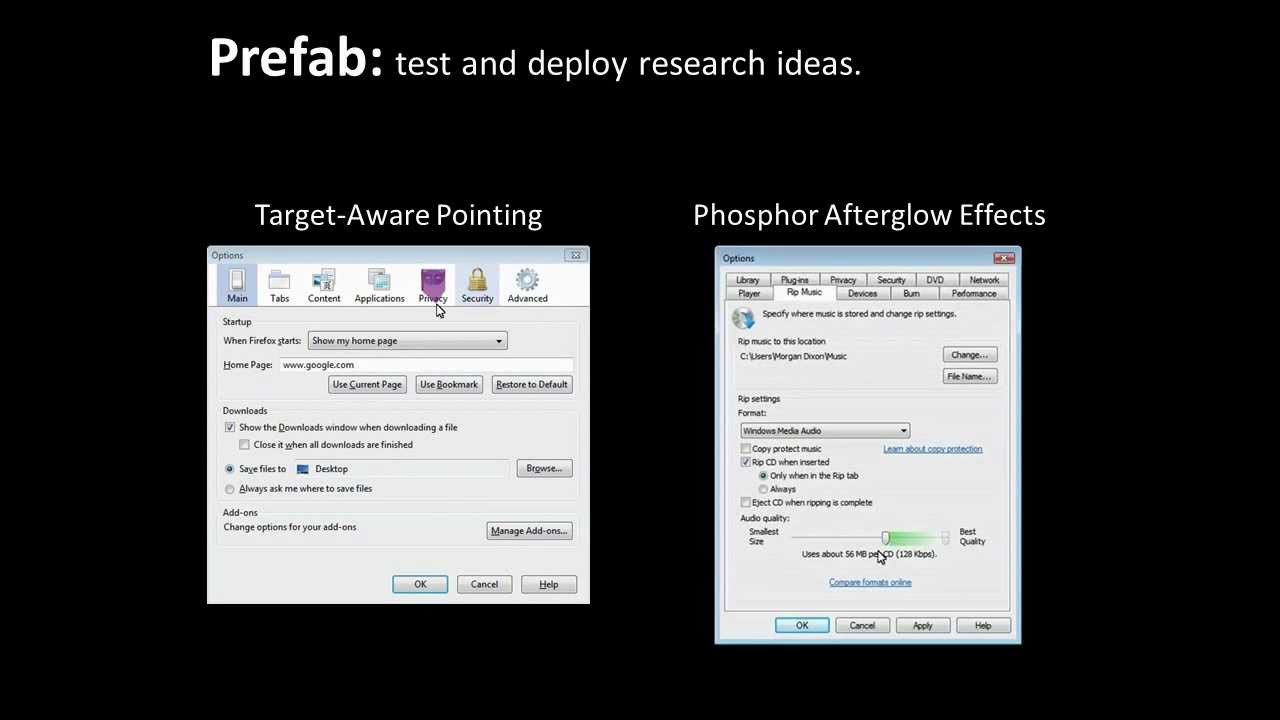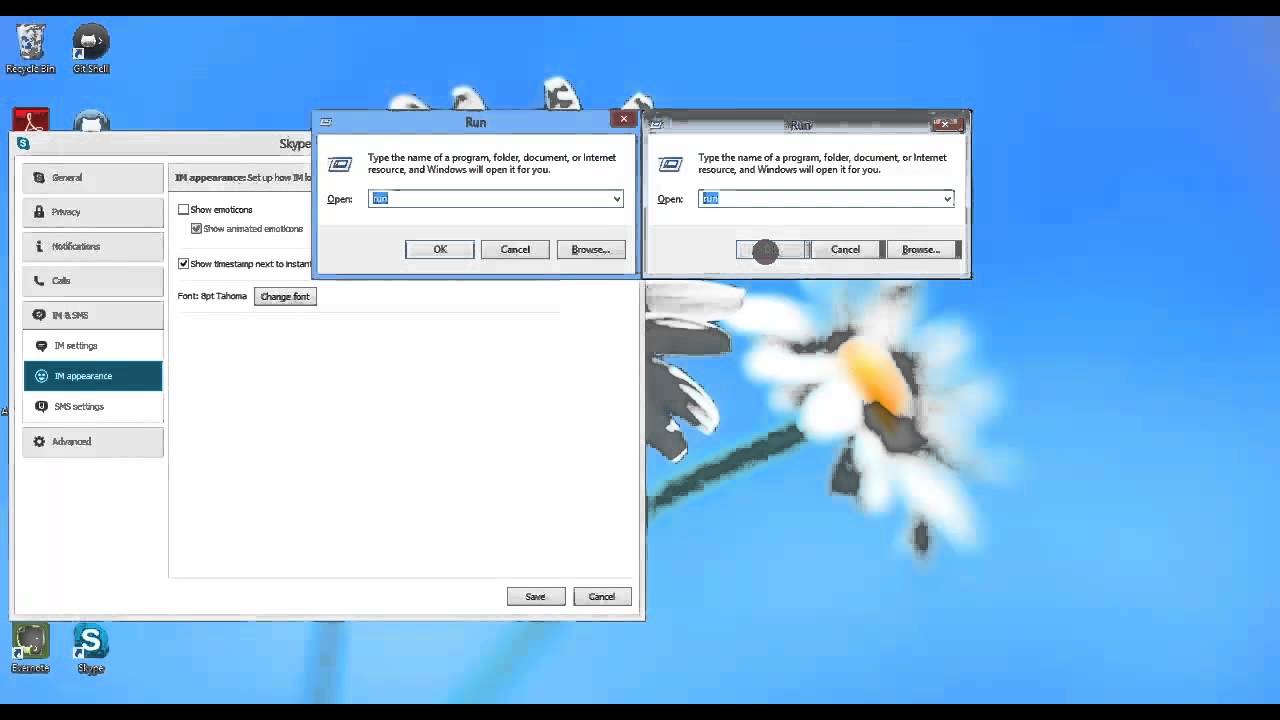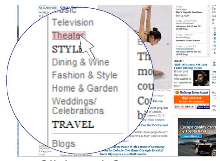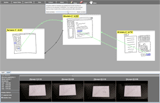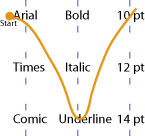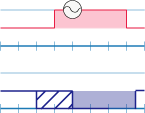Appsheet (Acquired by Google in January 2020)
Appsheet enables people to build their own mobile and web apps without
programming. As a UX Engineer, I design, build, and test new features
for the platform, and I also improve the design of existing features.
I focus on the customer's experience, ranging from aesthetic
improvements to deep infrastructure changes that enable a more
expressive UI.
Adobe Research
From 2016 - 2017 I worked as a Research Scientist at Adobe. Here I
collaborated with other researchers, designers, and developers to
design, research, and test new tools for building interfaces.
Publications of this work are listed below. In addition to prototyping
new tools, I also worked closely with the Adobe Experience Design (XD)
team to create new advanced features.
Prefab
Most of my dissertation was on
Prefab, a system for reverse
engineering interfaces from their pixels. Prefab enables the
modification of applications independent of their source code. In
other words, it lets us explore the question,
"What if anyone could modify any interface?"
Prefab's
Github page includes all of
our code, papers, videos, and related press. To quickly see some of
the stuff we've built, check out the videos below.
Previous Projects
Cheeseburger Therapy
An online community for talking through troubling
situations. Members can chat anonymously with a trained helper, or
participate in a training program to learn the psychology and help
out others. Our goal is to make mental health support less
stigmatized, more accessible, and cheaper for everyone.
Enhanced Area Cursors
Enhanced area cursors are special types of cursors for reducing
the fine pointing demands for people with motor impairments.
Framewire
Framewire is a tool for automatically extracting interaction
logic from paper prototyping tests.
Codex
Codex is a dual-screen tablet computer that can be oriented in a
variety of postures.
Electronic Reading Devices
When reading, people frequently read from multiple display
surfaces. We designed a prototype dual display e-book reader and
explored how it can be used to interact with electronic
documents.
Crossing-Based Interfaces
We explored crossing-based interfaces, where interactions are
performed by crossing a pen through targets. We examined the
space-speed tradeoff inherent in these interfaces and designed a
new crossing widget.
ExperiScope
ExperiScope is an analytical tool that helps designers and
experimenters explore the results of interaction technique user
studies. The tool makes it easy to identify and compare key
patterns of use.
Publications
Rewire: Interface Design Assistance from Examples
Amanda Swearngin, Mira Dontcheva, Wilmont Li, Joel Brandt, Morgan
Dixon, Andrew J. Ko
Charette: Supporting In-Person Discussions around Iterations in User
Interface Design.
CHI 2018
Jasper O'Leary, Holger Winnemoller, Wilmont Li, Mira Dontcheva,
Morgan Dixon
Prefab Layers and Prefab Annotations: Extensible Pixel-Based
Interpretation of Graphical Interfaces.
UIST 2014
Morgan Dixon, Conrad Nied, James Fogarty
Pixel-Based Methods for Widget State and Style in a Runtime
Implementation of Sliding Widgets.
CHI 2014
Morgan Dixon, Gierad Laput, James Fogarty
A General-Purpose Target-Aware Pointing Enhancement Using
Pixel-Level Analysis of Graphical Interfaces.
CHI 2012
Morgan Dixon
, James Fogarty, and Jacob O. Wobbrock.
Content and Hierarchy in Pixel-Based Methods for Reverse-Engineering
Interface Structure.
CHI 2011
Morgan Dixon
, Daniel Leventhal, and James Fogarty.
Enhanced Area Cursors: Reducing fine pointing demands for people
with motor impairments.
UIST 2010
Leah Findlater, Kristen Shinohara,
Morgan dixon
, Peter Kamb, Josh Rakita, Jacob O. Wobbrock.
Prefab: Implementing Advanced Behaviors Using Pixel-Based Reverse
Engineering of Interface Structure.
CHI 2010
Best Paper Award
Morgan Dixon
and James Fogarty.
Framewire: A Tool for Automatically Extracting Interaction Logic
from Paper Prototyping Tests.
CHI 2010
Yang Li, Xiang Cao, Kate Everitt,
Morgan Dixon
, and James Landay.
Codex: A Dual Screen Tablet Computer.
CHI 2009
Ken Hinckley,
Morgan Dixon
, Raman Sarin, Francois Guimbreteiere, and Ravin Balakrishnan.
Navigation Techniques for Dual-Display E-Book Readers.
CHI 2008
Nicholas Chen, Francois Guimbretiere,
Morgan Dixon
, Casandra Lewis, and Maneesh Agrawala.
Optimal Parameters for Efficient Crossing-Based Dialog Boxes.
CHI 2008
Morgan Dixon
, Francois Guimbretiere, and Nicholas Chen. (2008).
ExperiScope: An Analysis Tool for Interaction Data.
CHI 2007
Francois Guimbretiere,
Morgan Dixon
, and Ken Hinckley.
Prefab: What if Every GUI Were Open-Source?
Morgan Dixon
and James Fogarty.
CHI 2010. Workshop Paper.

